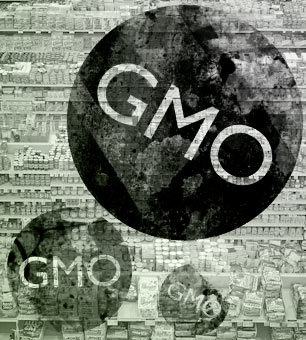Support justice-driven, accurate and transparent news — make a quick donation to Truthout today!
With biotech giant Monsanto leading the way, big agribusiness firms and food manufacturers have vastly outspent organic food and alternative health firms in an effort to defeat California’s Proposition 37 ballot initiative that would require special labels on foods made with genetically engineered (GE) organisms.
Monsanto’s contribution of $4.2 million to the No on 37 campaign is more than double the $2 million that the supporters of Proposition 37 have raised in total so far. In all, big agriculture firms, food manufacturers and pro-biotech industry groups have raised $25 million to defeat Proposition 37, according to the nonpartisan group Voter’s Edge California.
Chemical giant Dupont, which ranks second to Monsanto in worldwide GE seed sales, has contributed $4 million to defeat the labeling proposition. Pepsico, Coca-Cola, Nestle and the chemical and GE seed manufacturers Bayer and BASF have all contributed $1 million or more.
“These are the same companies that told us that DDT and agent orange are safe,” said Stacy Malkan, spokesperson for the Yes on 37 For Your Right to Know if Your Food Has Been Genetically Engineered campaign committee.
The big food and agriculture companies are squaring off against organic food and health firms such as Nature’s Path ($250,000), Dr. Bronner’s Magic Soaps ($290,000) and Organic Valley ($50,000). Mercola.com, an alternative health resource web site, tops the list with $800,000 in contributions to the Yes on 37 campaign.
Despite the vast funding disparity, recent polls suggest that a majority of Californian’s want to know if their food contains GE ingredients and support Proposition 37. But that won’t keep the corporate food coalition from trying to sway voters in the coming months.
Malkan said the Proposition 37’s big business opponents are expected to use their vast resources to bombard Californians with “deceptive” TV ads prior to the vote in November.
“I think it’s about huge chemical companies trying to hide what they are doing to our food,” Malkan said.
A spokesperson for the No on 37 Stop the Deceptive Food Labeling Scheme campaign did not respond to an inquiry from Truthout prior to publication. On its web site, the group claims that Proposition 37 would increase bureaucracy at the expense of taxpayers and increase food costs for consumers as food companies and farmers update their packaging and deal with lawsuits.
The stakes are high. Now that the vast majority of corn and soybeans grown in the United States are genetically engineered in some way, labeling could have a big impact on what consumers see in the grocery story. California boasts the largest population of consumers in the US, and a victory for GE food labeling there could pave the way for regulatory changes nationwide.
If foods containing GE ingredients are labeled, consumers may be more likely to buy organic and non-GE foods despite the biotechnology industry’s repeated claims that GE foods are as safe as conventional foods.
GE food opponents, however, say that some studies have shown that GE foods pose health risks.
Most GE crops are genetically altered to withstand or produce pesticides and herbicides. Organics advocates and agricultural reformers say that GE mono-crop farming is unsustainable and has unfavorable environmental impacts, such as creating herbicide resistant “superweeds.”
The biotech industry, however, claims GE crop technology, such as drought-resistant corn, is necessary to feed the world’s growing population.
Press freedom is under attack
As Trump cracks down on political speech, independent media is increasingly necessary.
Truthout produces reporting you won’t see in the mainstream: journalism from the frontlines of global conflict, interviews with grassroots movement leaders, high-quality legal analysis and more.
Our work is possible thanks to reader support. Help Truthout catalyze change and social justice — make a tax-deductible monthly or one-time donation today.
